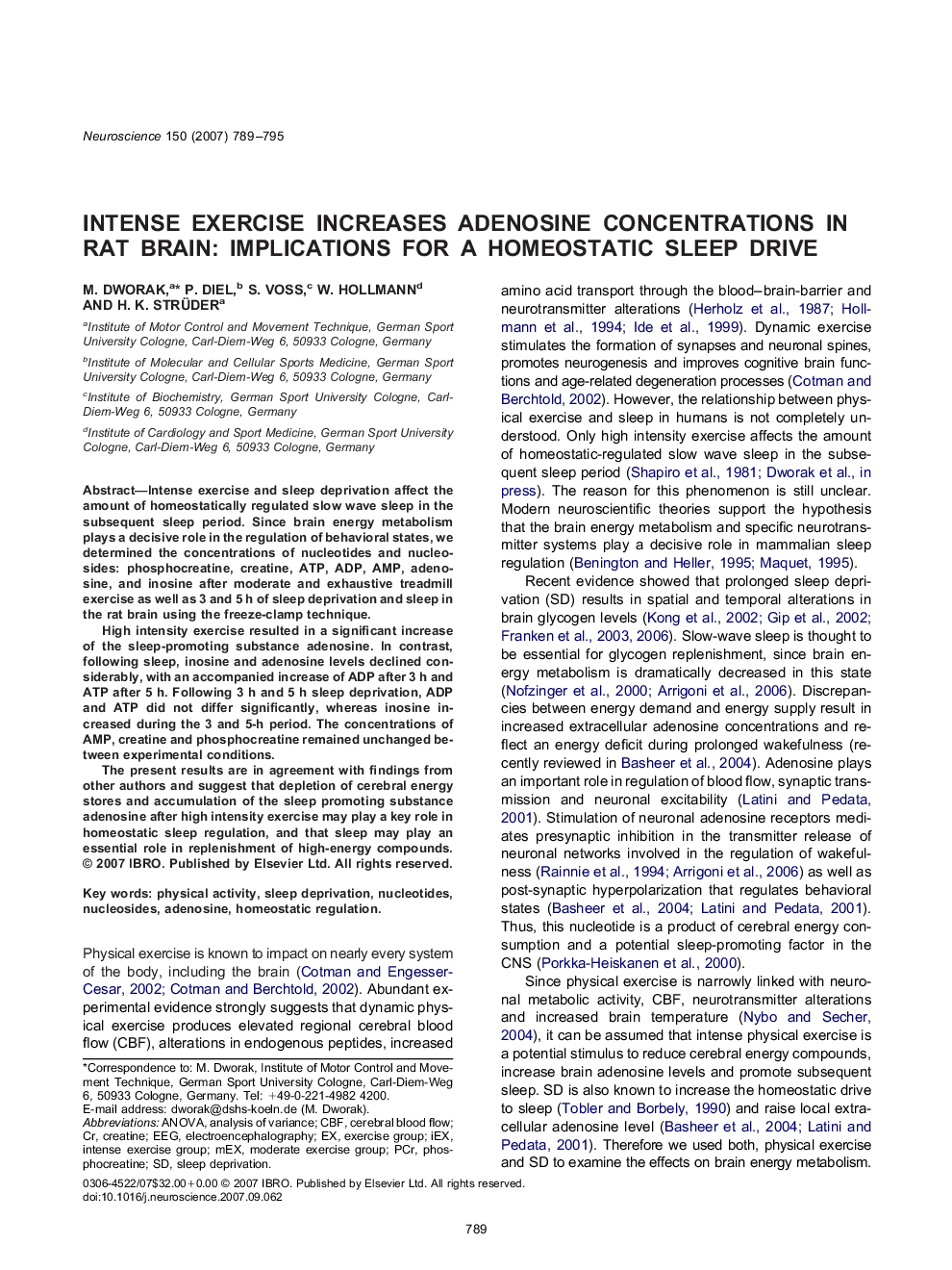| Article ID | Journal | Published Year | Pages | File Type |
|---|---|---|---|---|
| 4341015 | Neuroscience | 2007 | 7 Pages |
Intense exercise and sleep deprivation affect the amount of homeostatically regulated slow wave sleep in the subsequent sleep period. Since brain energy metabolism plays a decisive role in the regulation of behavioral states, we determined the concentrations of nucleotides and nucleosides: phosphocreatine, creatine, ATP, ADP, AMP, adenosine, and inosine after moderate and exhaustive treadmill exercise as well as 3 and 5 h of sleep deprivation and sleep in the rat brain using the freeze-clamp technique.High intensity exercise resulted in a significant increase of the sleep-promoting substance adenosine. In contrast, following sleep, inosine and adenosine levels declined considerably, with an accompanied increase of ADP after 3 h and ATP after 5 h. Following 3 h and 5 h sleep deprivation, ADP and ATP did not differ significantly, whereas inosine increased during the 3 and 5-h period. The concentrations of AMP, creatine and phosphocreatine remained unchanged between experimental conditions.The present results are in agreement with findings from other authors and suggest that depletion of cerebral energy stores and accumulation of the sleep promoting substance adenosine after high intensity exercise may play a key role in homeostatic sleep regulation, and that sleep may play an essential role in replenishment of high-energy compounds.
